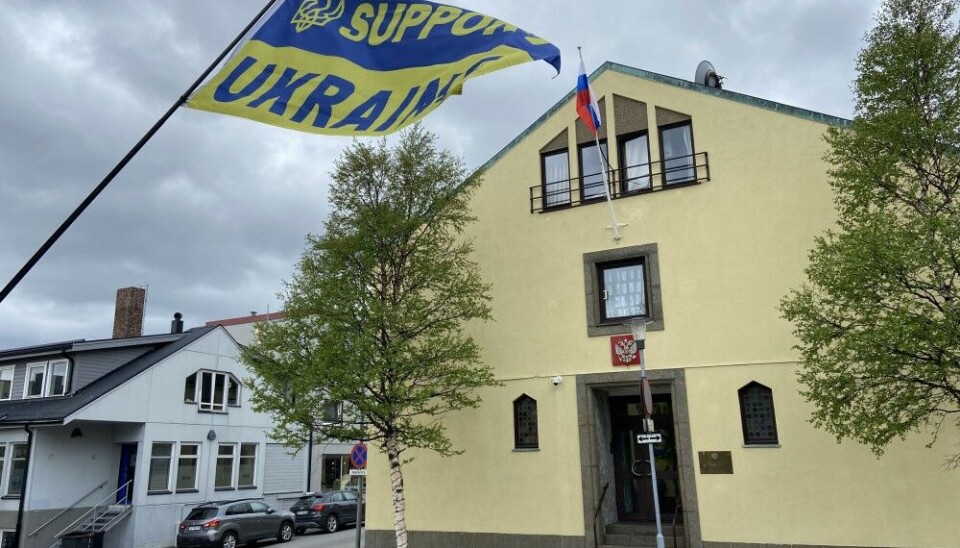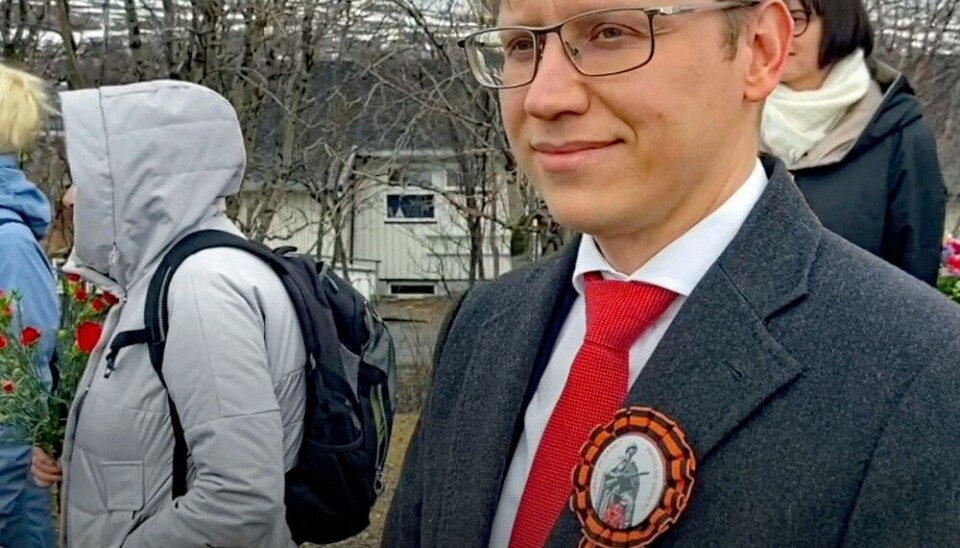
Russia's Kirkenes Consulate remains open, but for how long?
Consulates across Europe and Russia are hit by a wave of closure as diplomatic relations worsen.
The yellow building is the only one in Kirkenes with burglar bars on all ground-floor windows. Surveillance cameras keep an eye on people walking the street outside on their way to and from the town hall next building. A satellite antenna on the roof presumably links the diplomatic outpost with Moscow.
Russia’s Consulate General in the Norwegian border town had a key role in issuing visas. Nowadays, locals crossing the border to the Kola Peninsula are for the most people with dual citizenship. With outbreak of the full-scale war against Ukraine last February, officials ended most public cross-border project cooperation. From the Russian side, Putin had then already forced an end to almost all civil society initiatives involving Nordic neighbors. Western tourists stay away; cheap gas, restaurants and nightclubs in Murmansk were no longer tempting.
Today, the Kirkenes consulate serves as a transit hub for Russian diplomats on their way to Oslo, Barentsburg, Reykjavik. The land border up north is an easy journey from Moscow.















